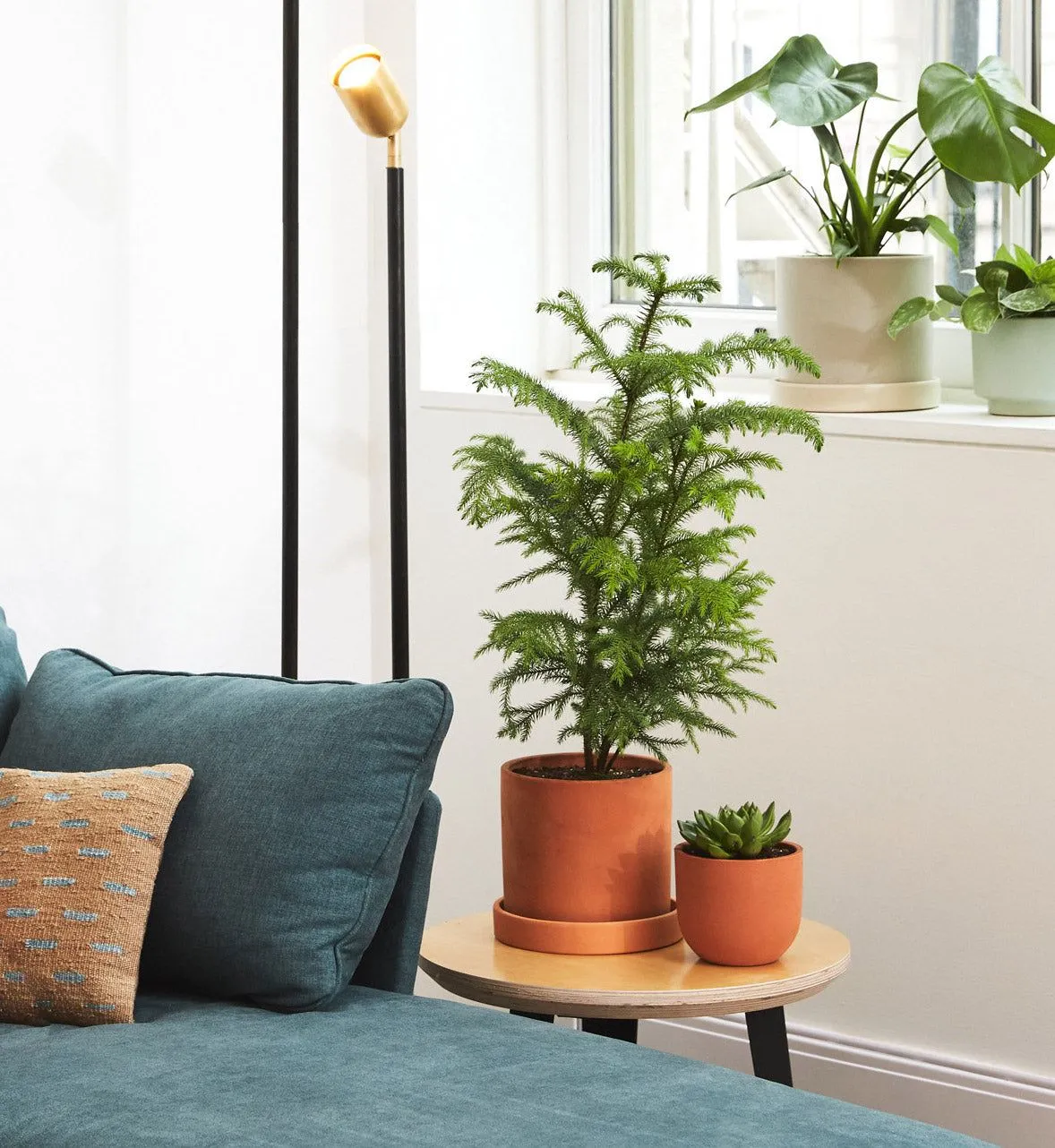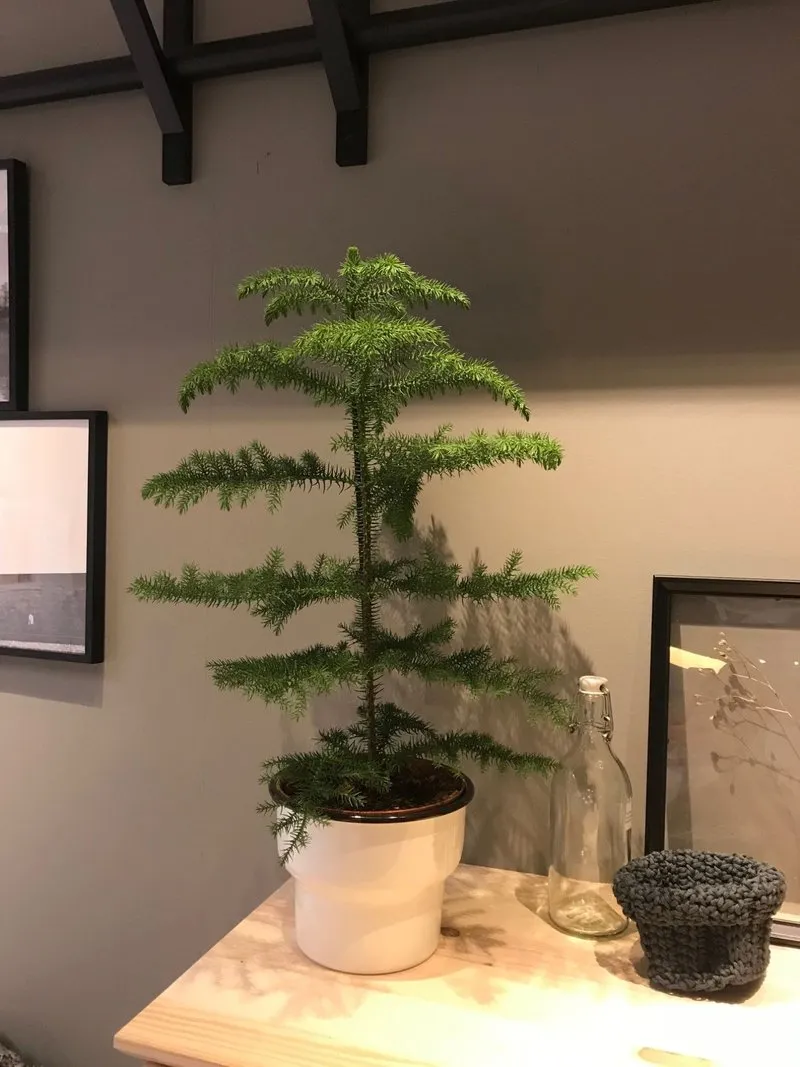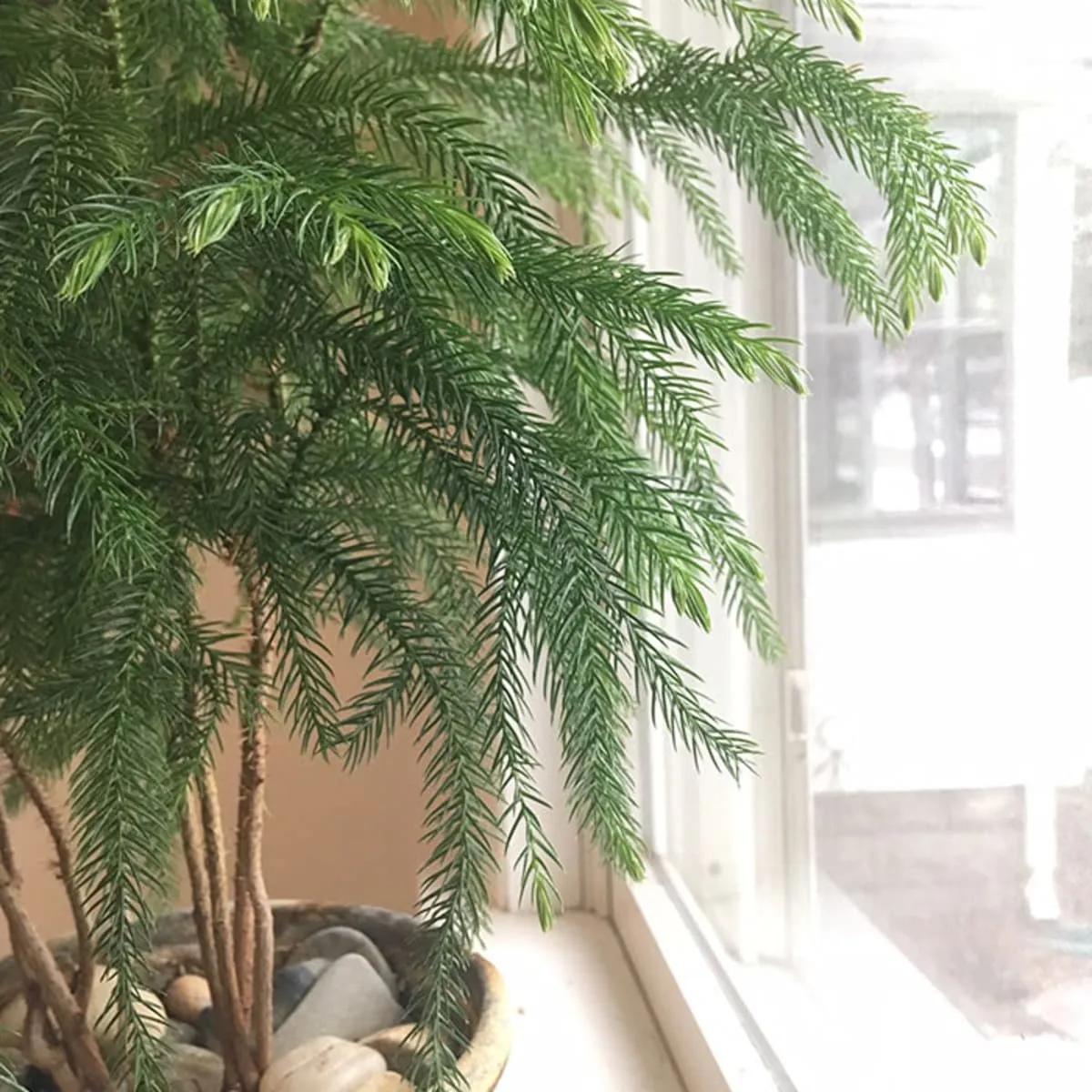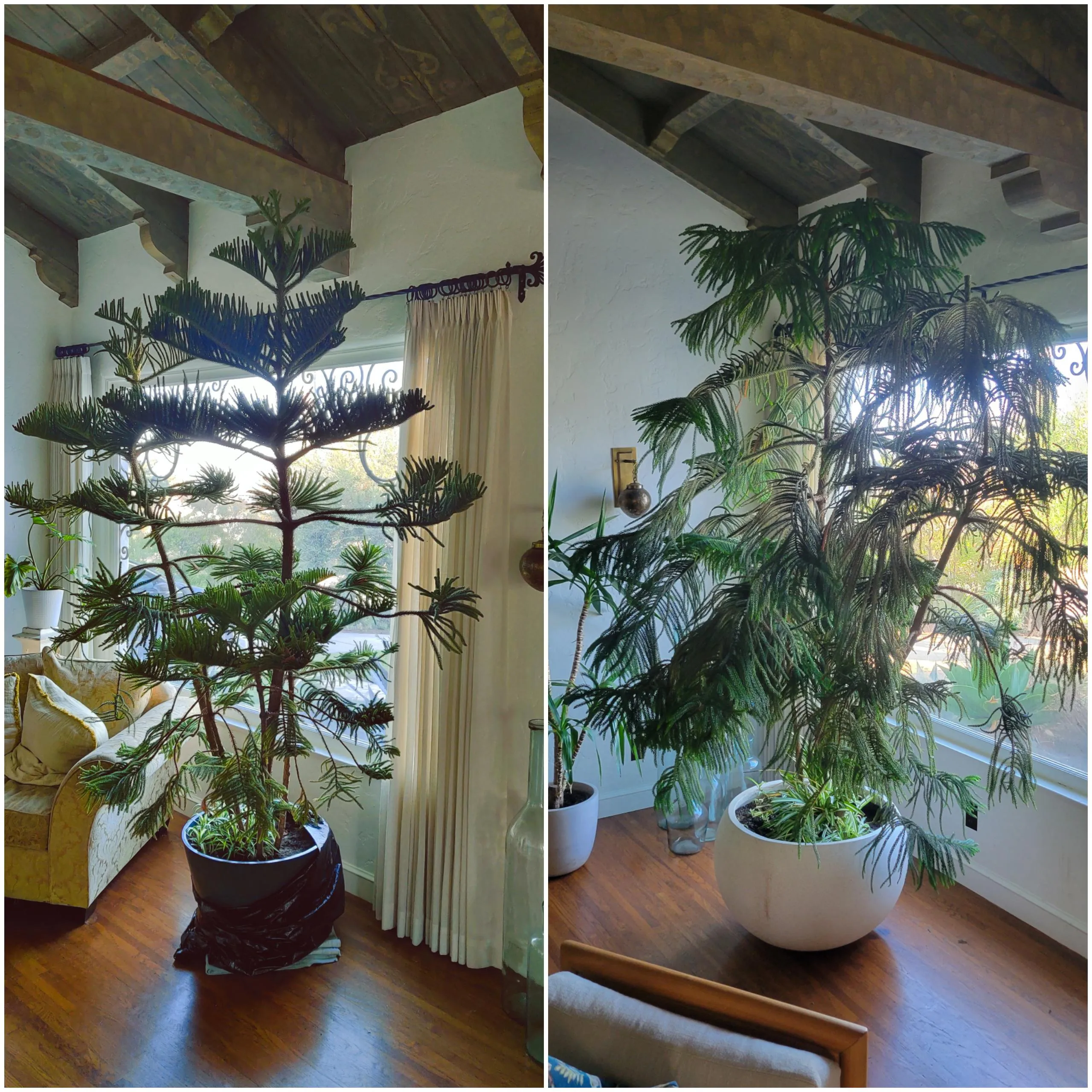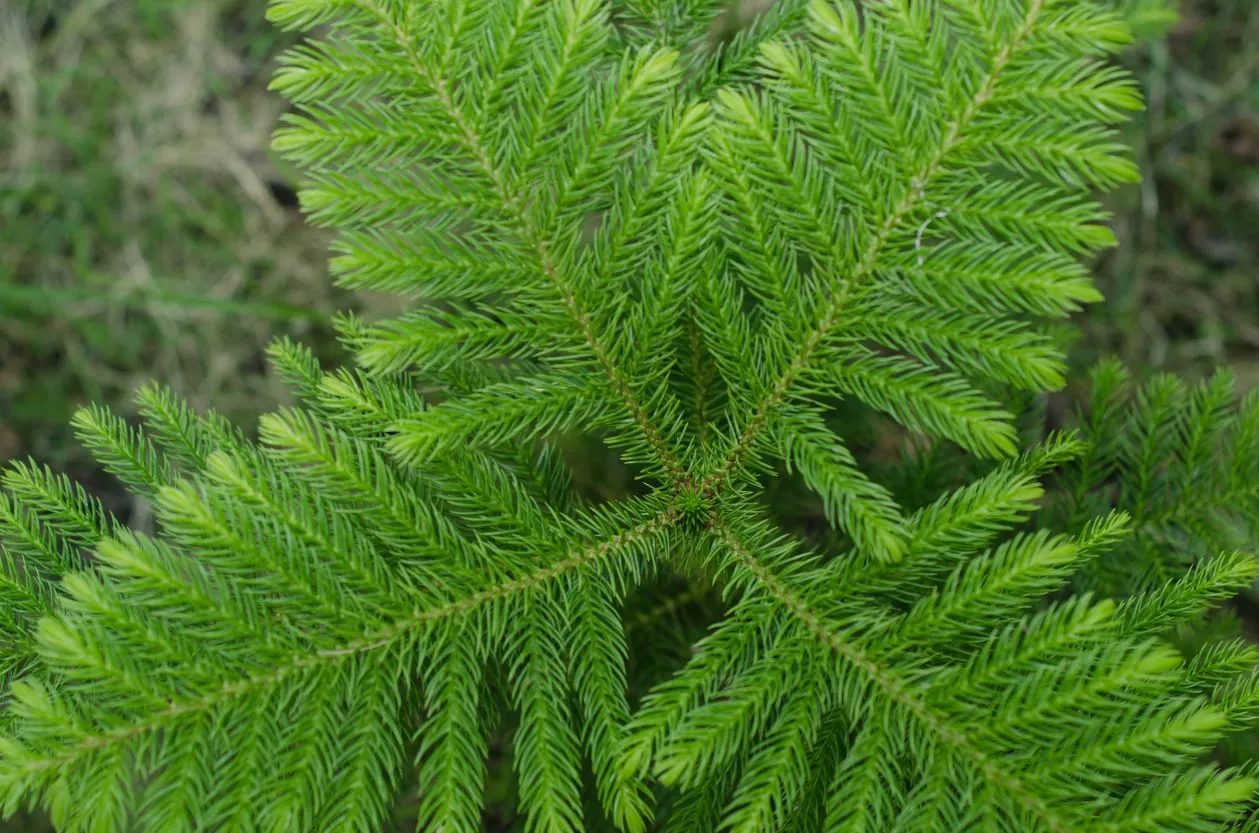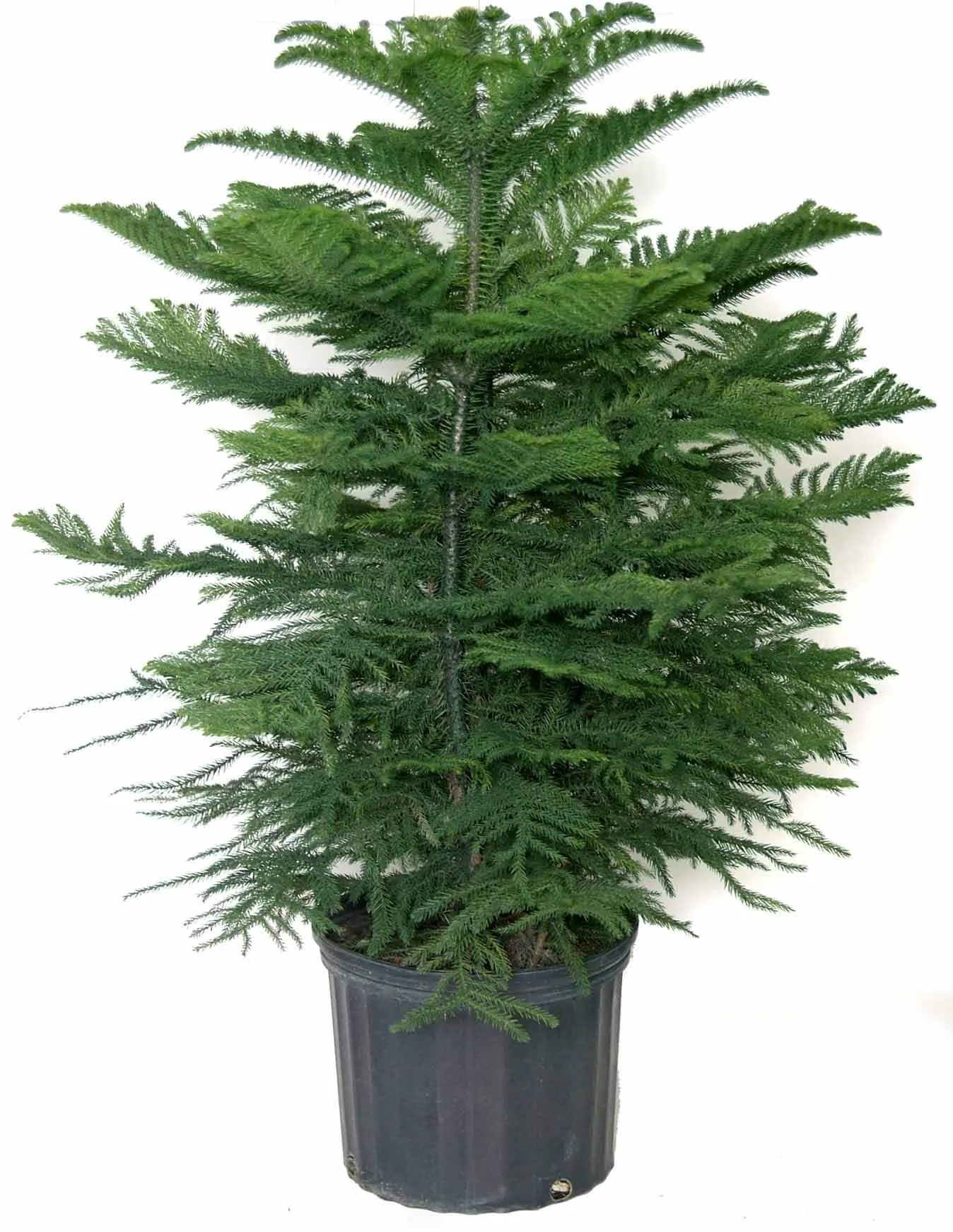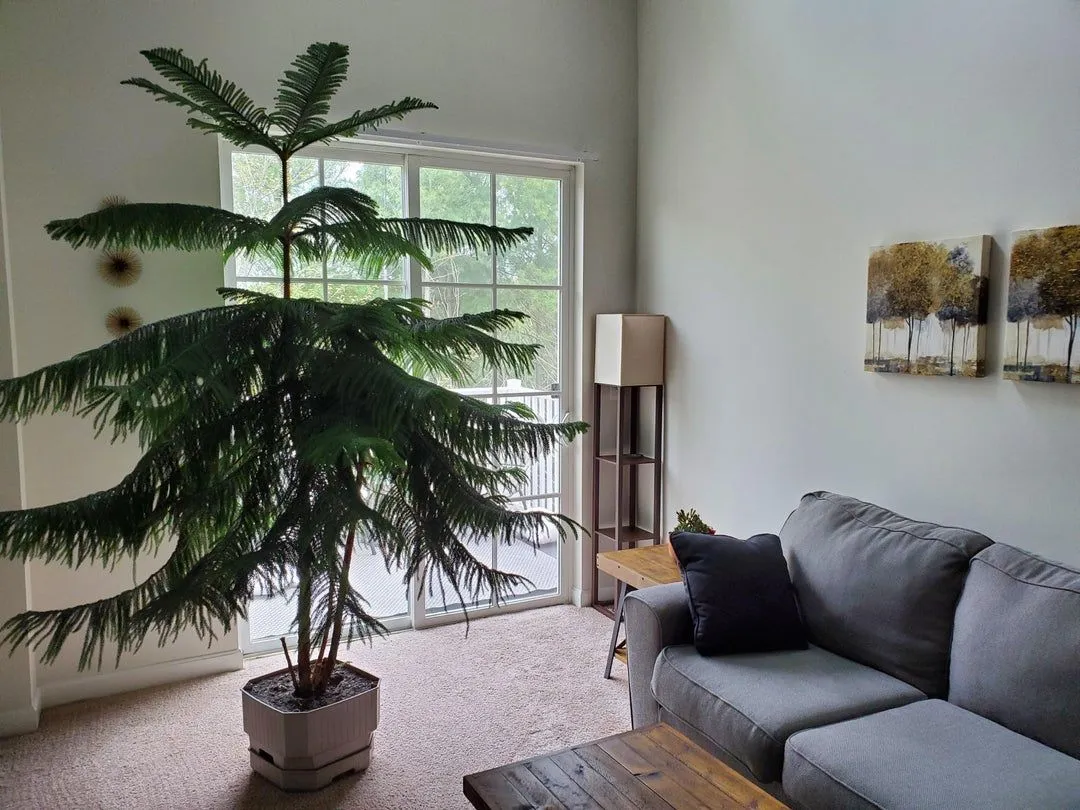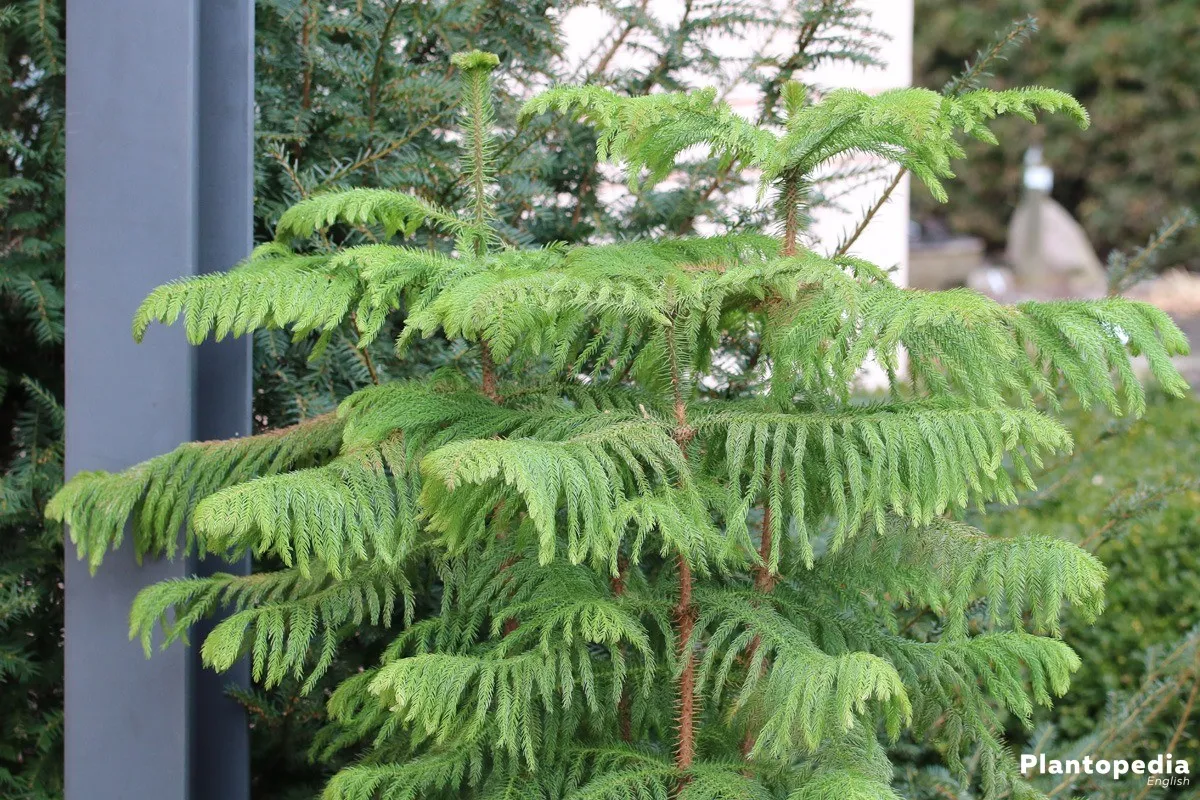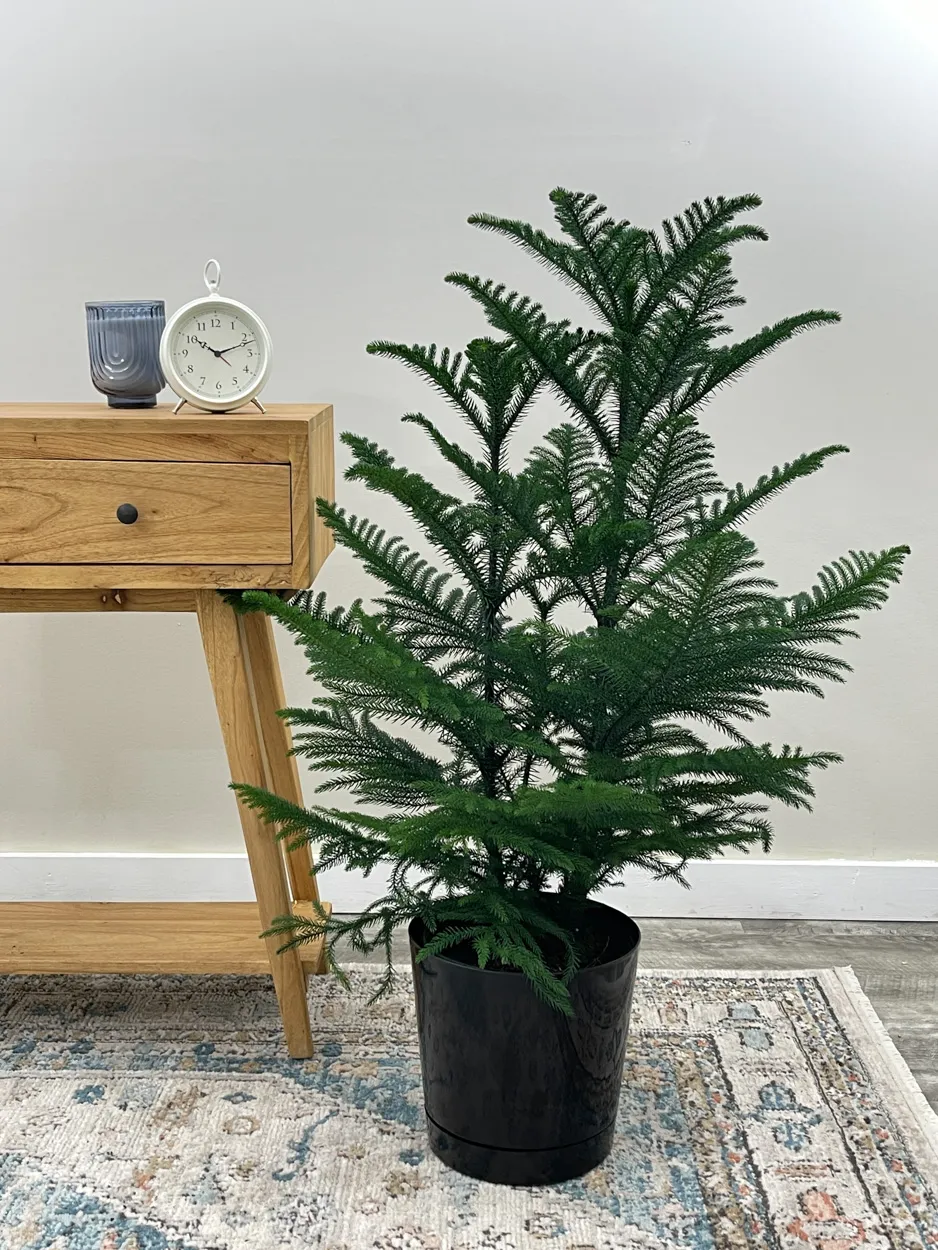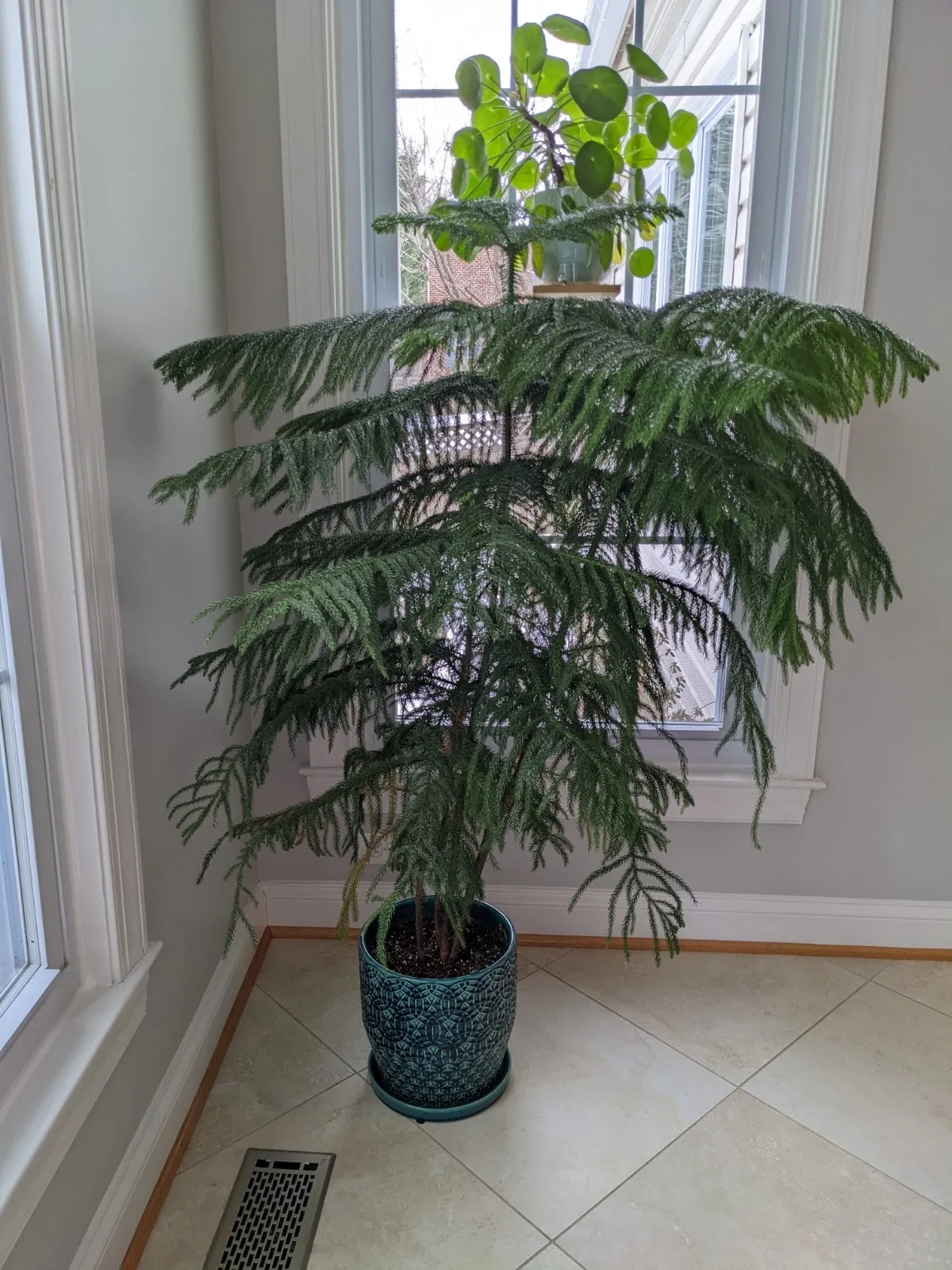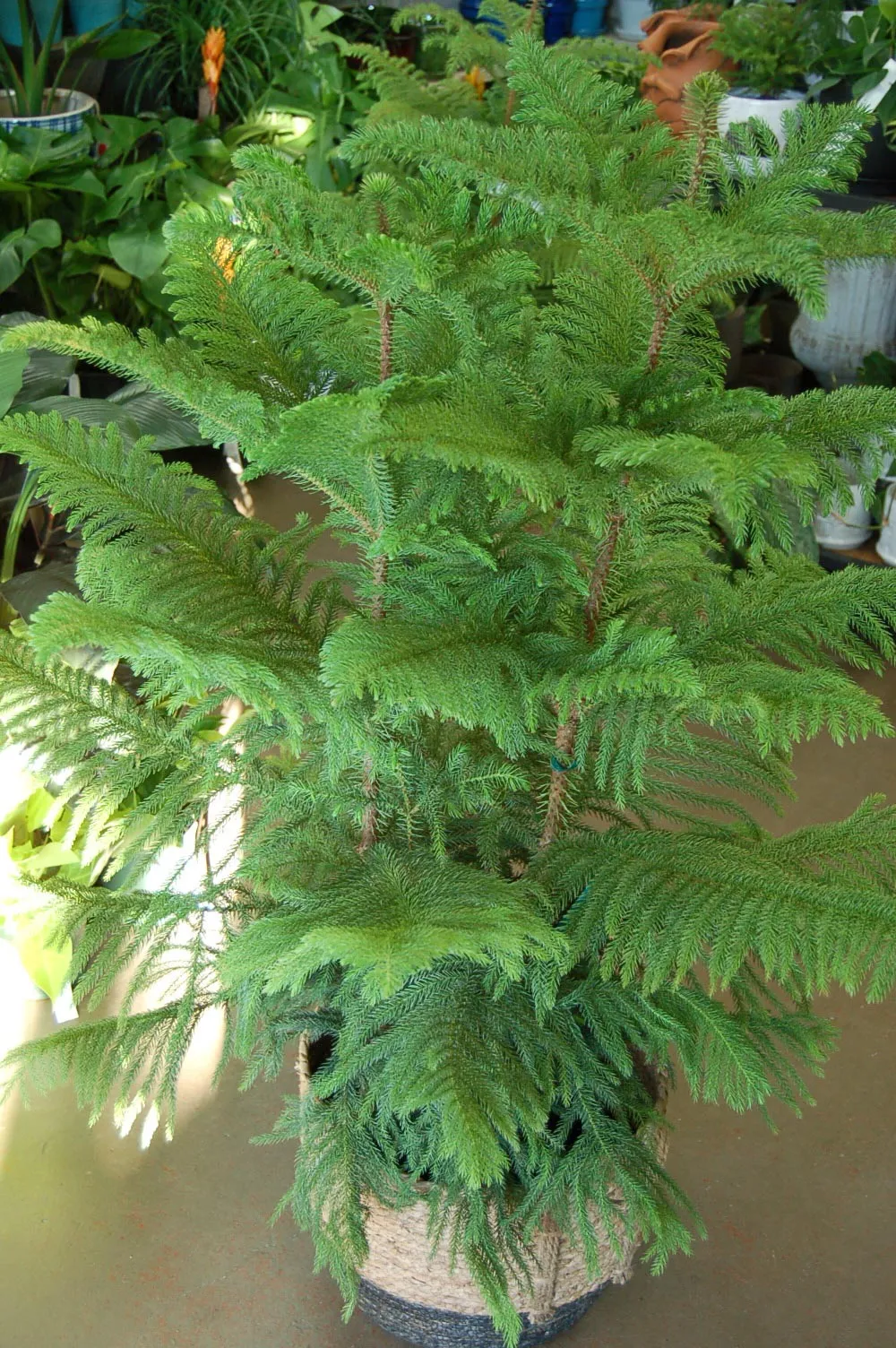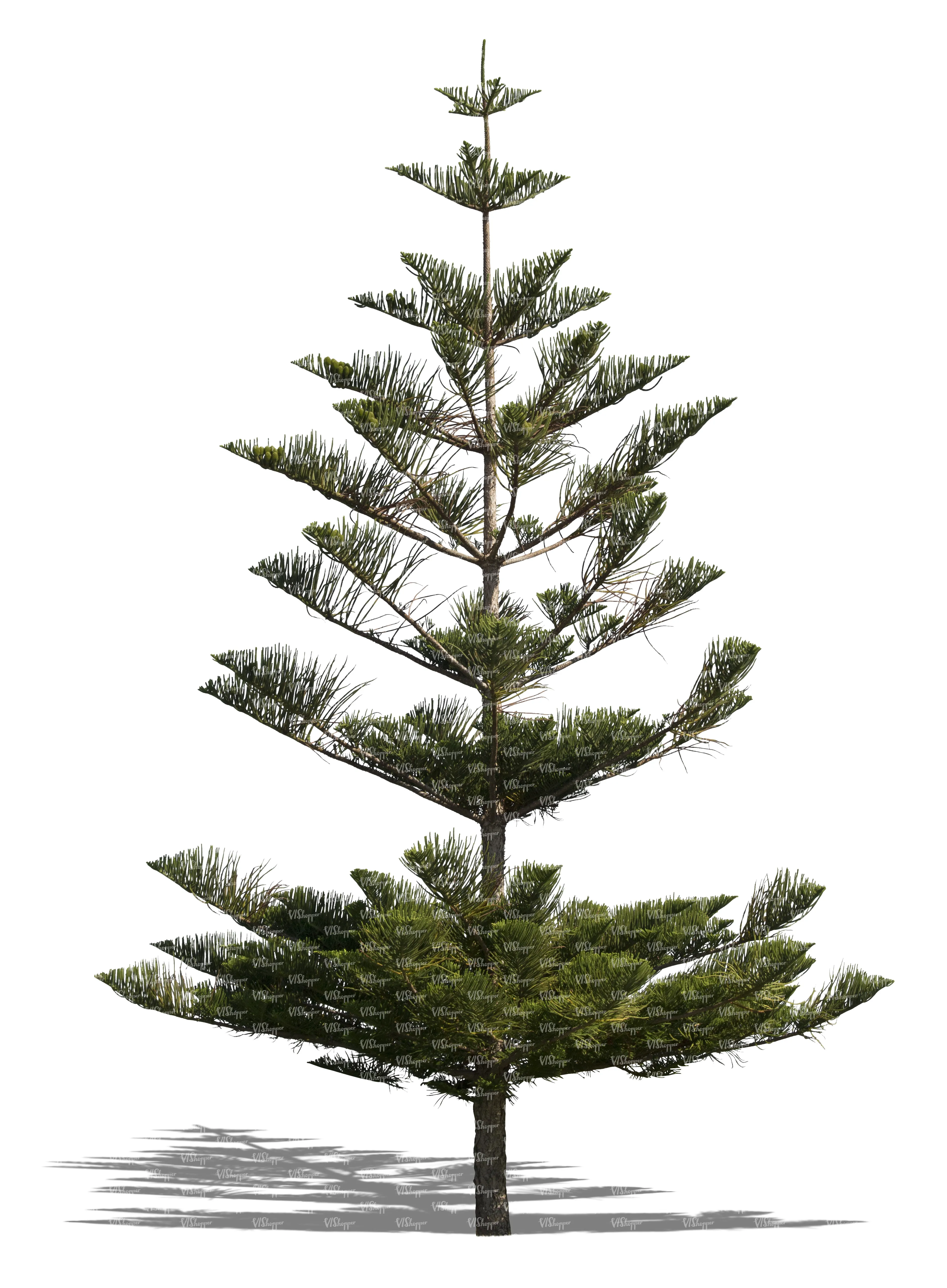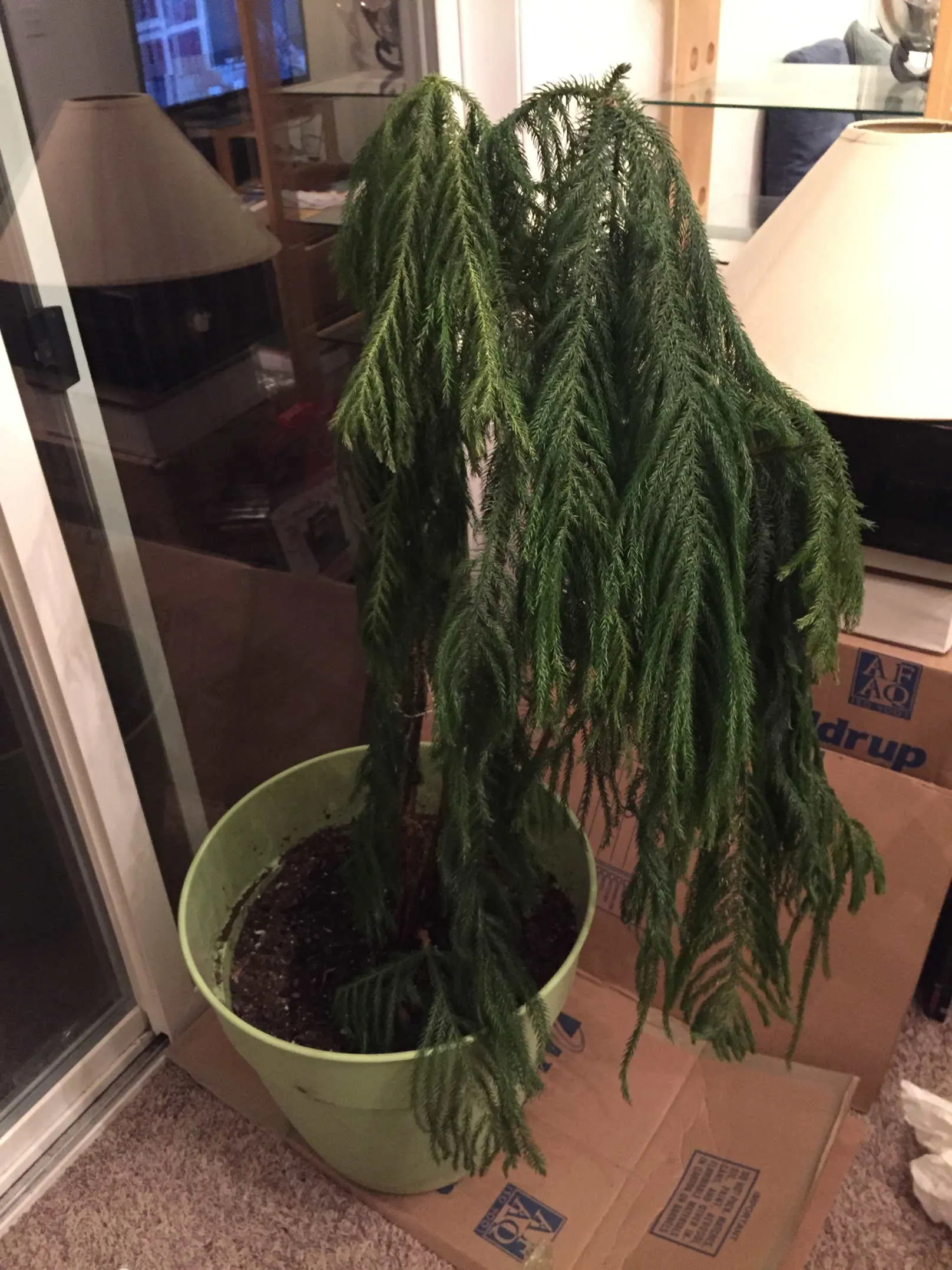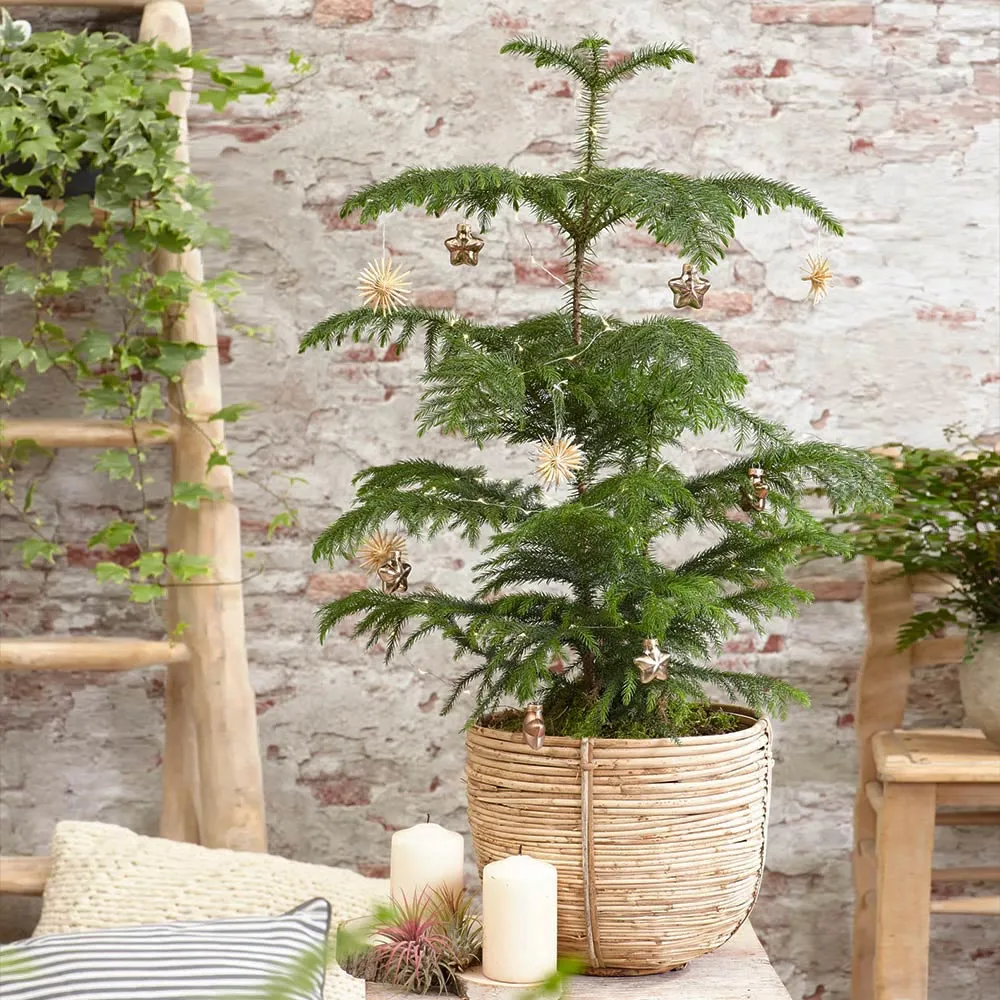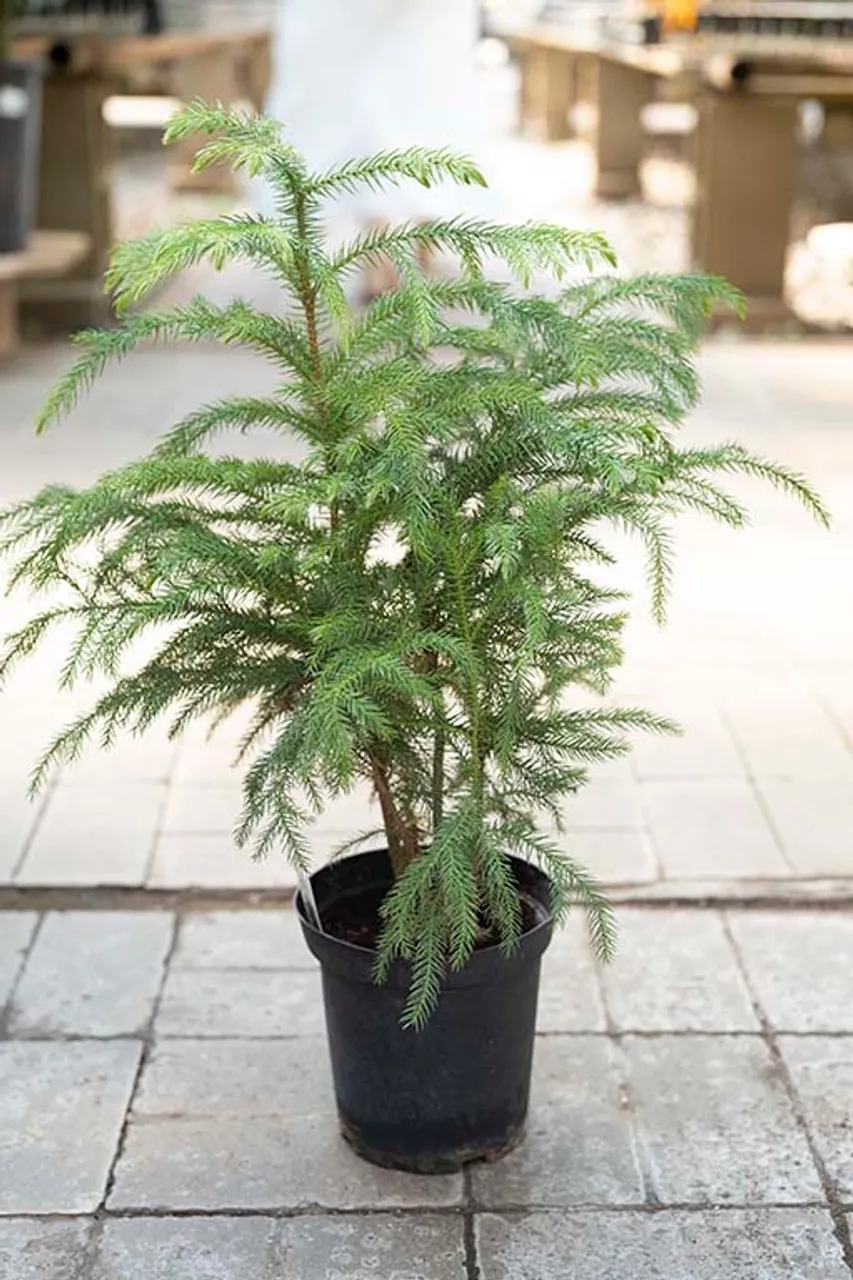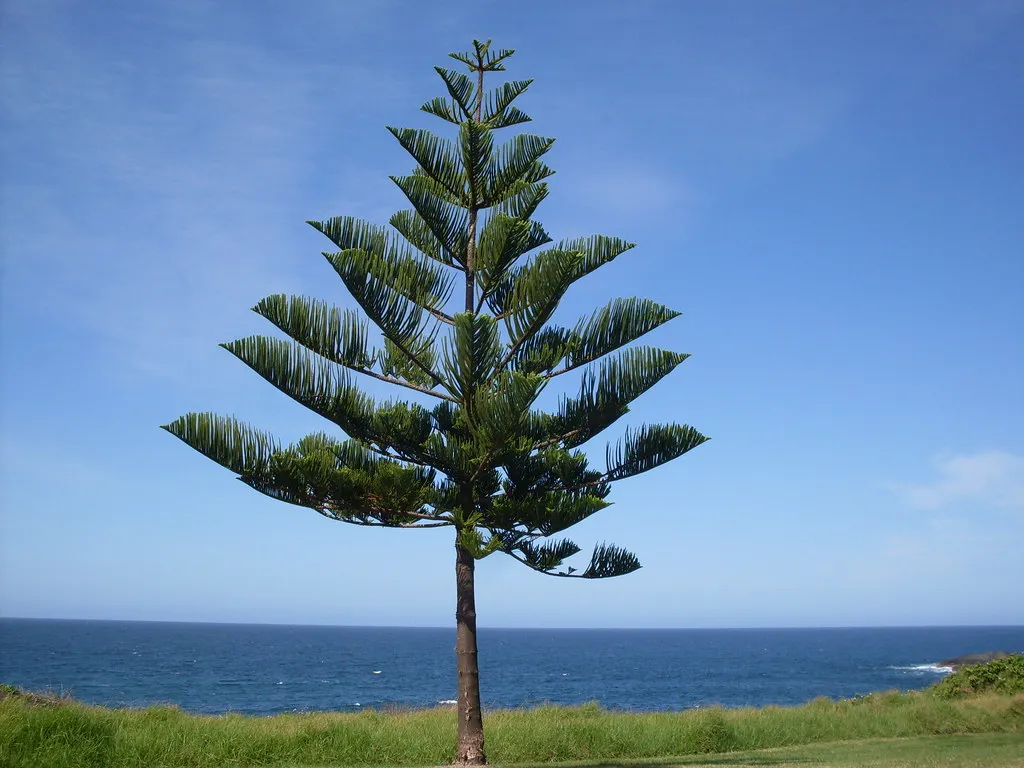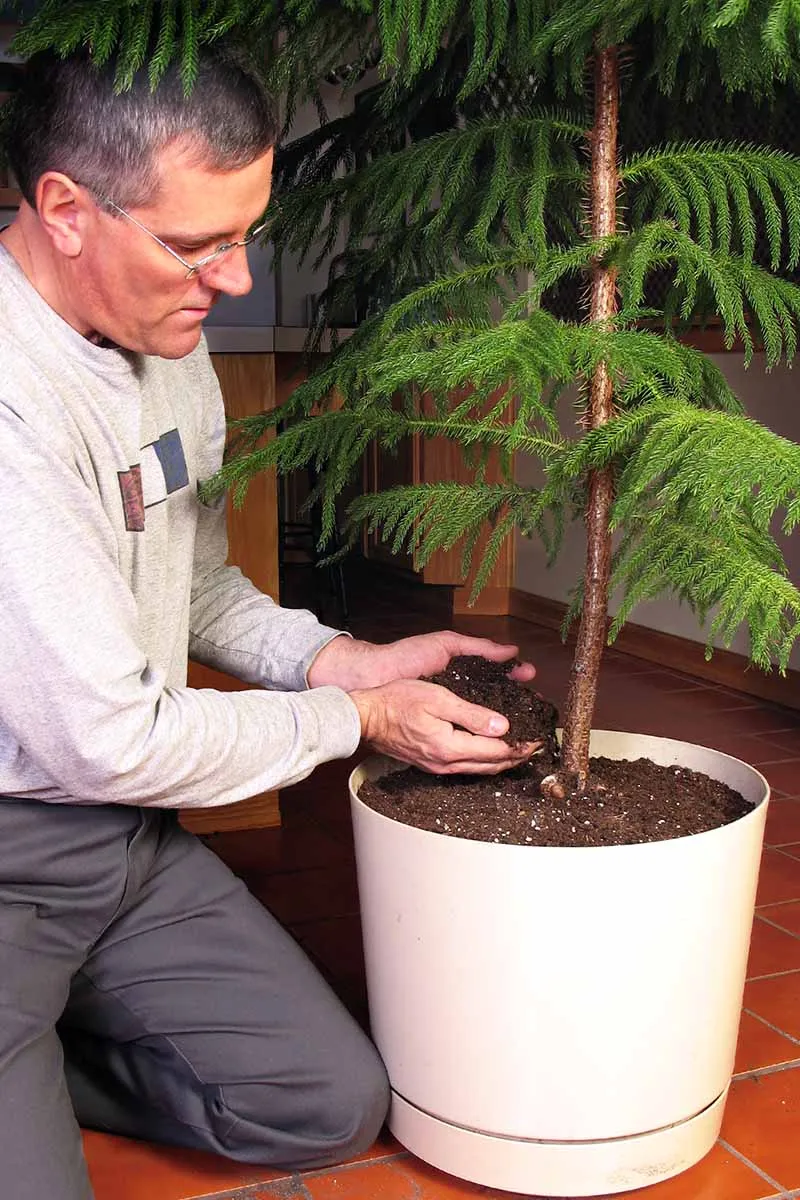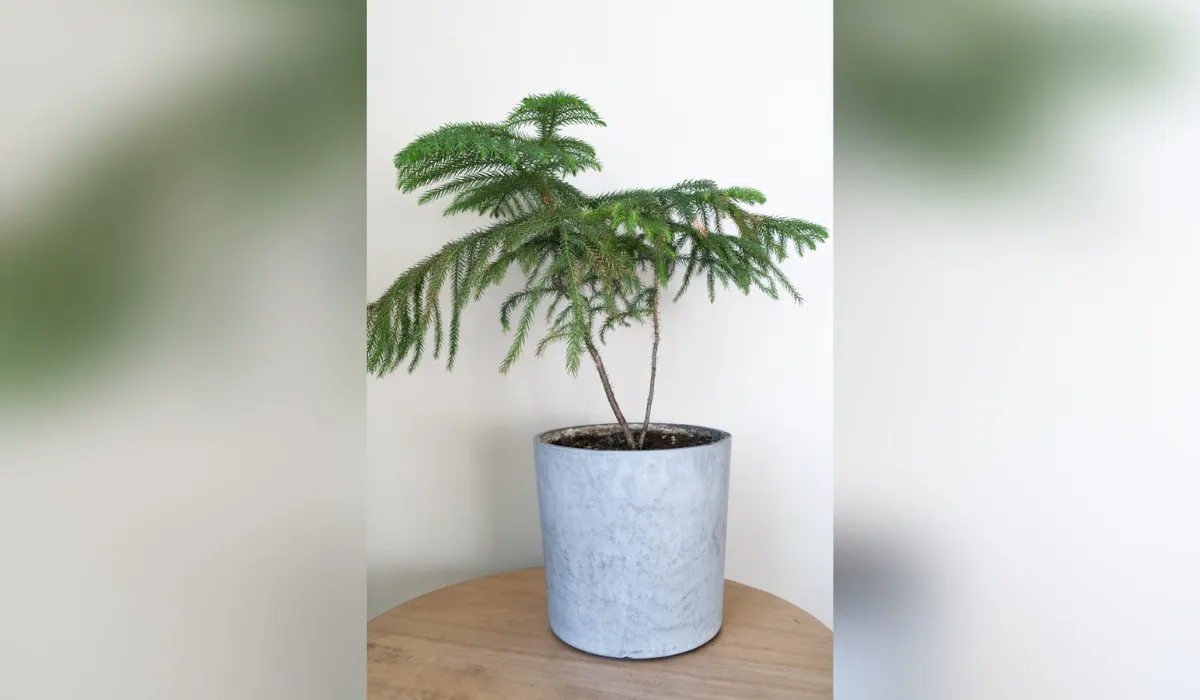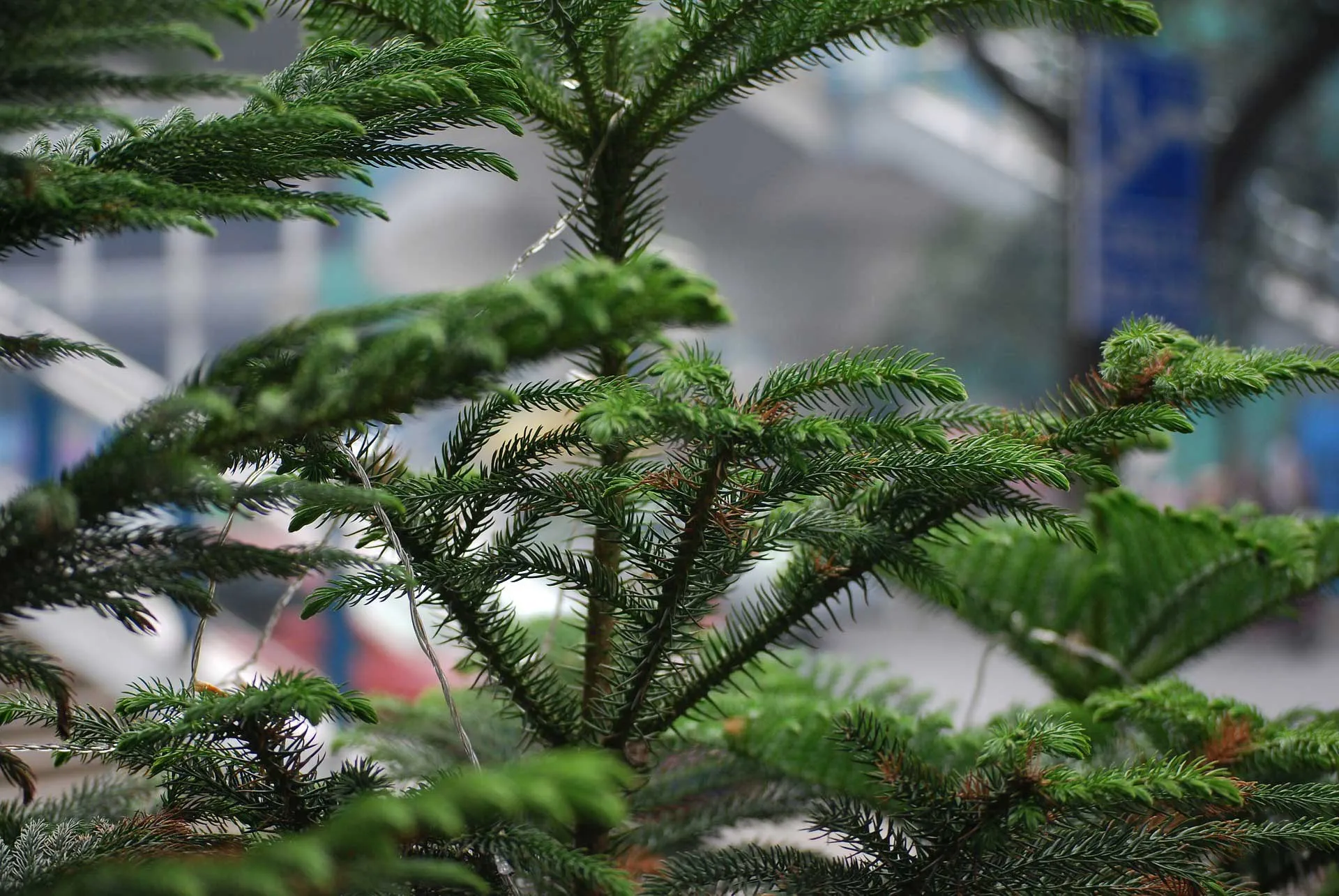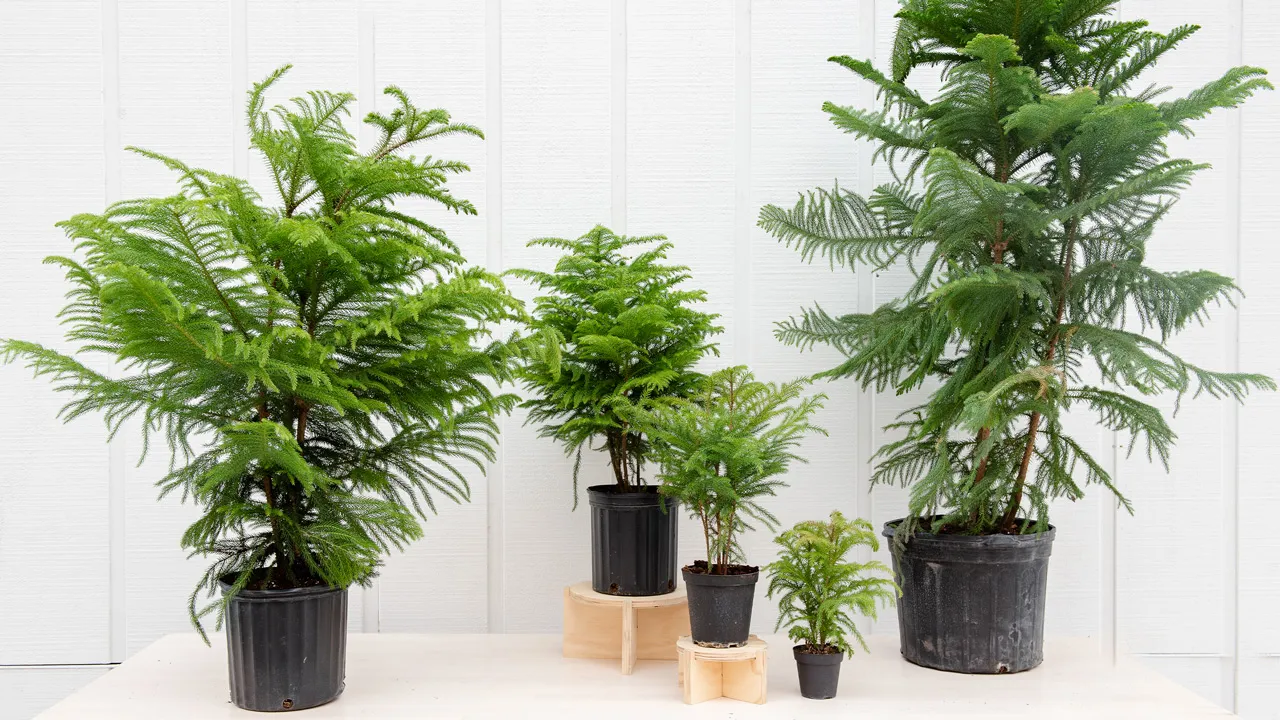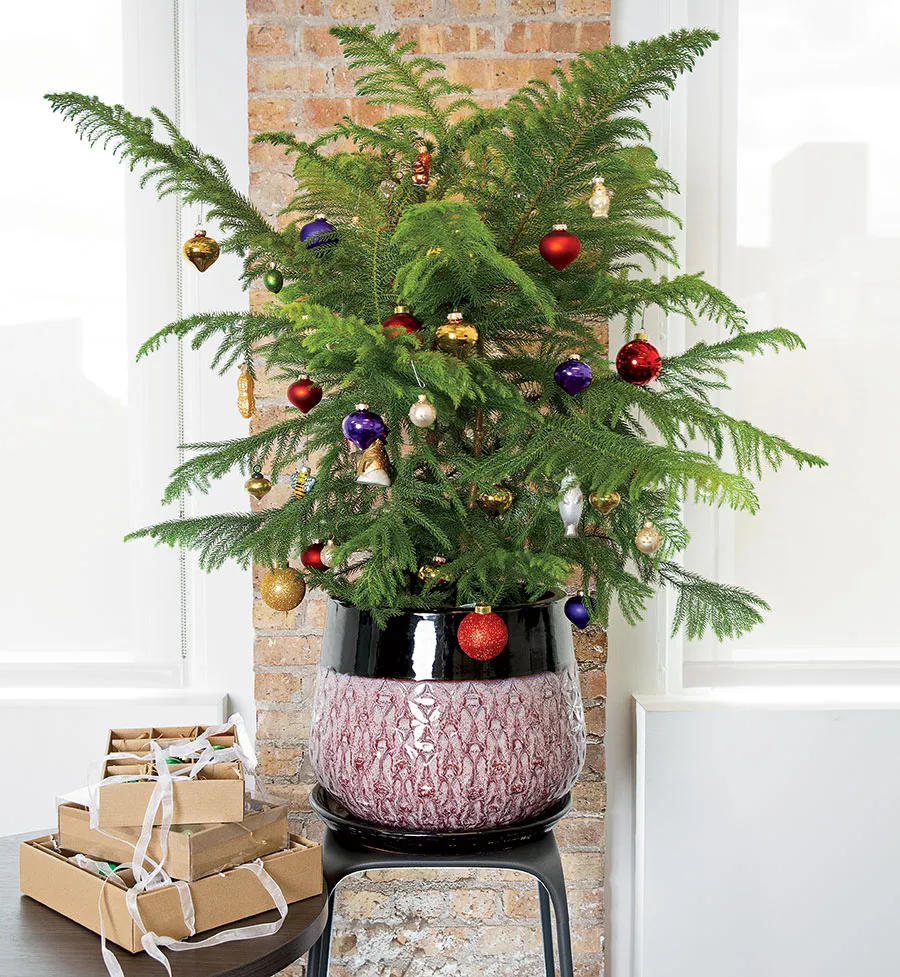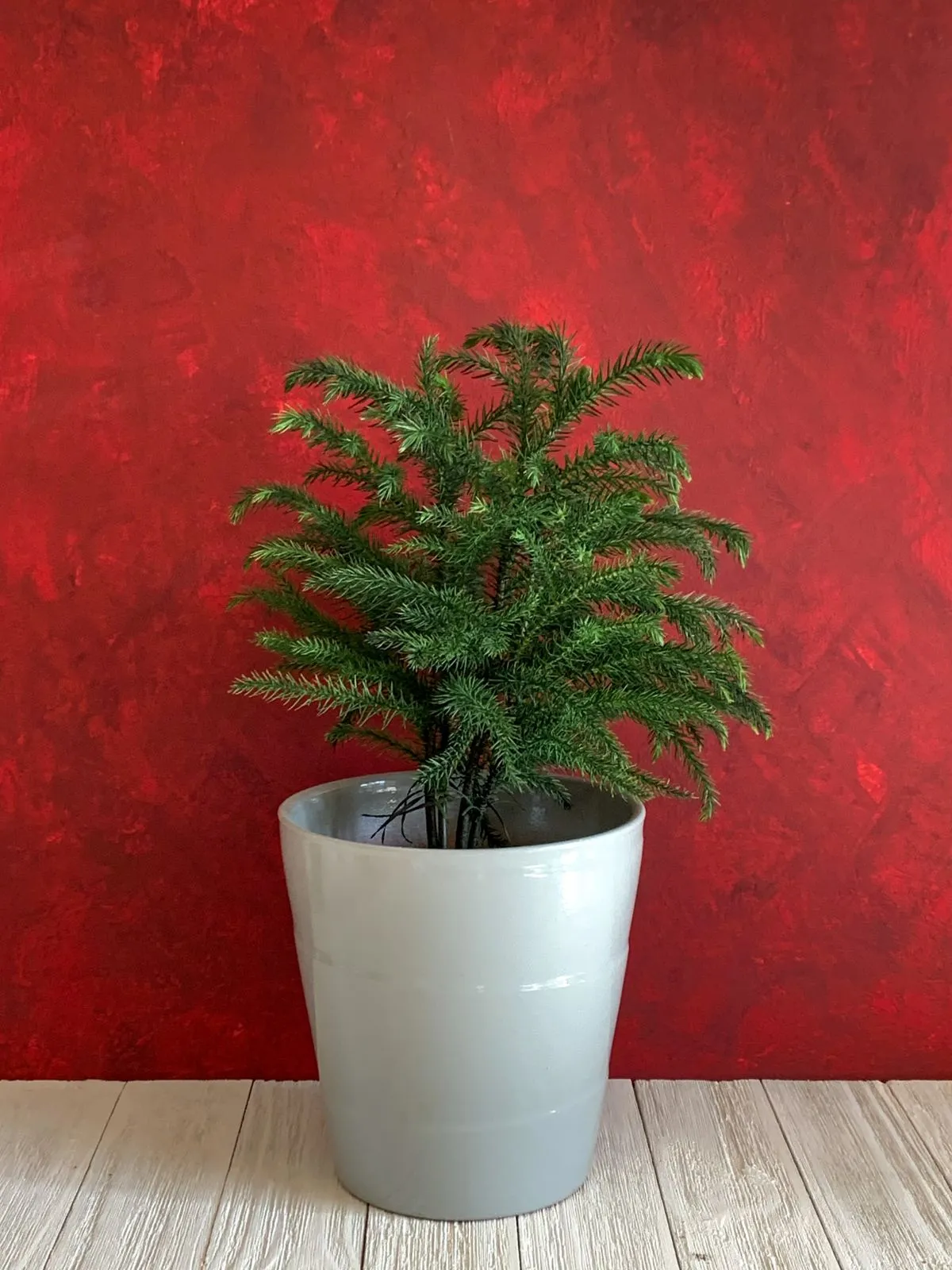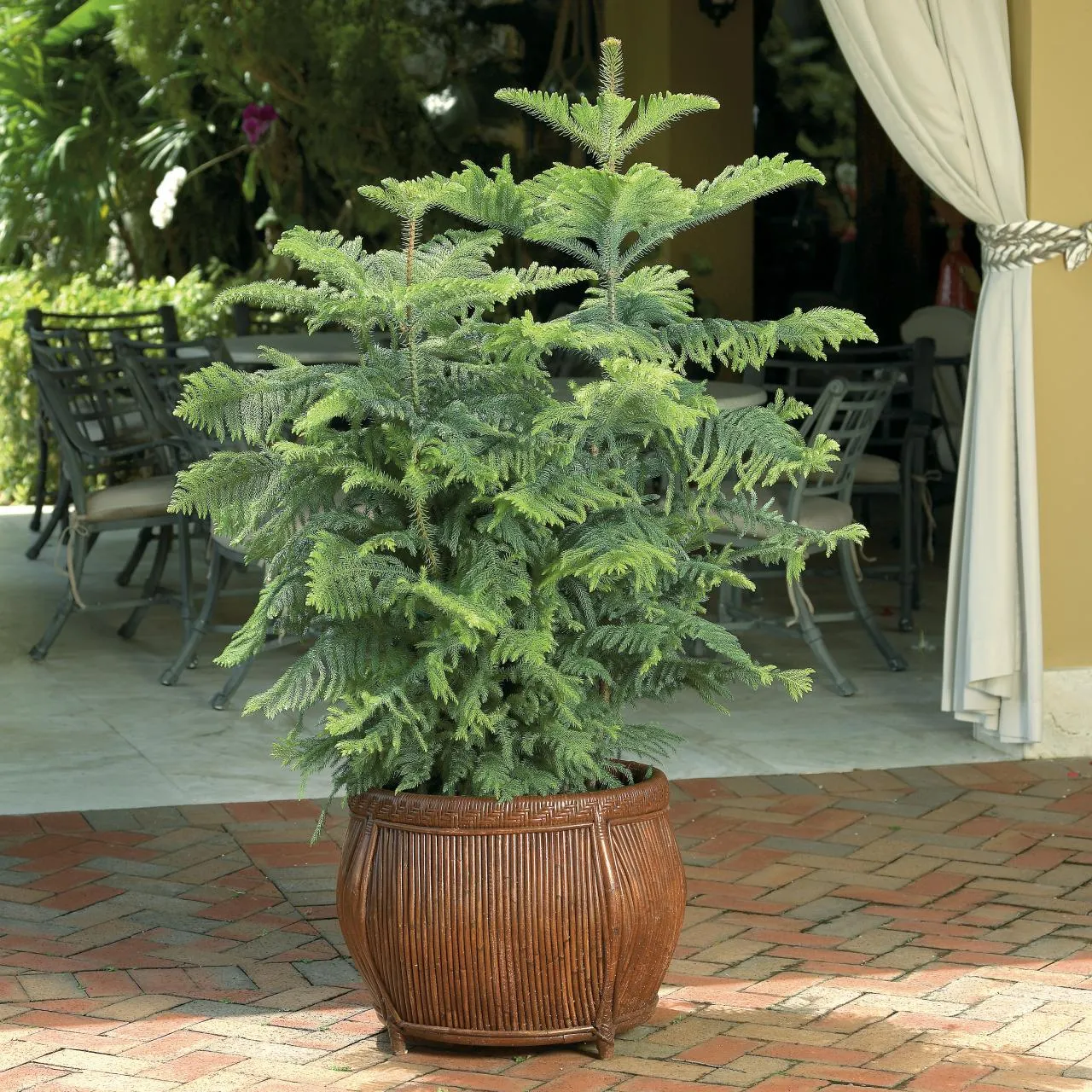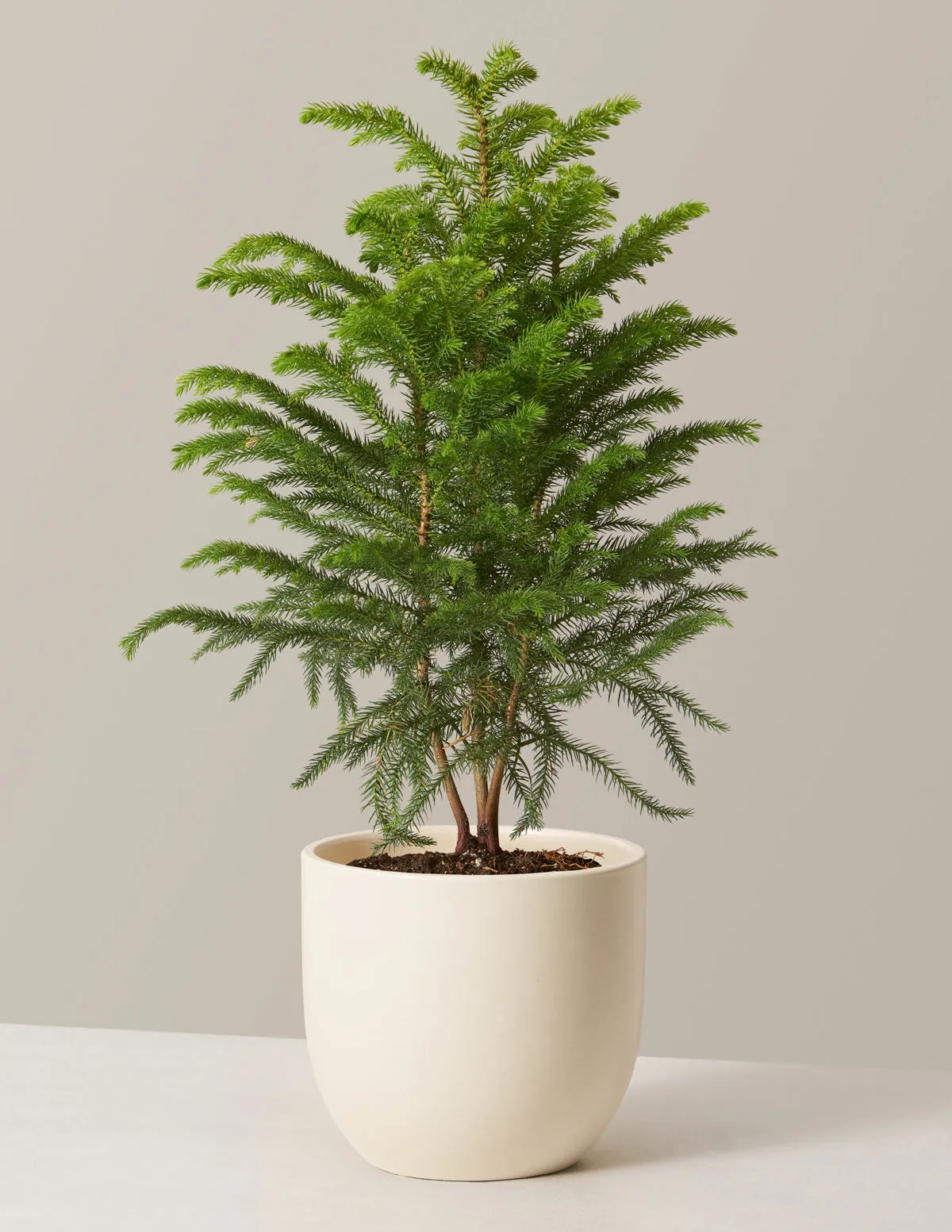Norfolk Island Pine: A Perfect Houseplant for Your Home
Houseplants are an excellent way to bring some greenery and life into your home. They add a touch of nature and beauty to your living space and also have some health benefits, such as purifying the air and reducing stress levels. One of the most popular houseplants is the Norfolk Island Pine, known for its unique appearance and easy care. In this article, we will explore everything you need to know about this fascinating plant, from its origin and characteristics to its care and propagation.
Origin and Characteristics
The Norfolk Island Pine, also known as Araucaria heterophylla, is a native of Norfolk Island, a small island located in the Pacific Ocean between Australia, New Zealand, and New Caledonia. It is a member of the Araucariaceae family, which includes other conifers such as the monkey puzzle tree and the bunya pine. The Norfolk Island Pine is a tall, evergreen tree that can grow up to 200 feet in its natural habitat. However, when grown as a houseplant, it usually reaches a height of 6 to 8 feet. The Norfolk Island Pine has a unique appearance that makes it stand out from other houseplants. Its branches grow in a symmetrical, tiered pattern, giving it a Christmas tree-like shape. The leaves are needle-like and can vary in size, from small and soft to large and stiff. The color of the leaves is usually dark green, but some varieties have yellow or variegated foliage.
Care
The Norfolk Island Pine is a relatively easy plant to care for, making it an excellent choice for beginner plant parents. Here are some tips on how to keep your Norfolk Island Pine healthy and thriving:
Light
The Norfolk Island Pine prefers bright, indirect light, but it can tolerate some direct sunlight. Place it near a window that receives morning or evening sun, or use a sheer curtain to filter the light. Avoid placing it in a dark corner or in direct sunlight for extended periods, as this can cause the leaves to burn.
Water
The Norfolk Island Pine likes to be kept evenly moist, but not waterlogged. Water it when the top inch of soil feels dry to the touch, and make sure to drain any excess water from the saucer. Overwatering can lead to root rot, which can be fatal to the plant. Underwatering can cause the needles to turn brown and fall off.
Humidity
The Norfolk Island Pine prefers high humidity, so it is a good idea to mist it regularly with a spray bottle or place it on a pebble tray filled with water. You can also use a humidifier to increase the humidity in the room. Dry air can cause the needles to dry out and turn brown.
Temperature
The Norfolk Island Pine prefers temperatures between 60 and 75 degrees Fahrenheit. It can tolerate slightly cooler temperatures but should be kept away from drafts and cold windows. Avoid placing it near heating vents or air conditioners, as these can cause the air to become too dry.
Fertilizer
The Norfolk Island Pine benefits from regular fertilization during the growing season, which is spring and summer. Use a balanced fertilizer, such as a 10-10-10 or 20-20-20 formula, and follow the instructions on the package. Do not fertilize during the winter months, as the plant is dormant.
Repotting
The Norfolk Island Pine does not need to be repotted often, as it prefers to be slightly root-bound. However, if you notice that the roots are growing out of the drainage holes or the plant is top-heavy, it may be time to repot. Use a well-draining potting mix and a pot that is one size larger than the current one. Repot in the spring or summer when the plant is actively growing.
Propagation
The Norfolk Island Pine can be propagated from seeds or cuttings. However, it is a slow-growing plant, so it may take several years to see significant growth. Here are the steps to propagate a Norfolk Island Pine from cuttings: 1. Select a healthy branch that is at least 6 inches long and has several sets of needles. 2. Cut the branch at a 45-degree angle using a clean, sharp knife or pruning shears. 3. Remove the needles from the bottom 2 inches of the cutting. 4. Dip the cut end in rooting hormone to encourage root growth. 5. Plant the cutting in a well-draining potting mix and water thoroughly. 6. Cover the pot with a plastic bag or dome to create a humid environment. 7. Place the pot in a bright, indirect light and keep the soil moist. 8. After several weeks, check for root growth by gently tugging on the cutting. If it resists, roots have formed. 9. Once the cutting has rooted, remove the plastic covering and treat it like a mature Norfolk Island Pine.
Varieties
The Norfolk Island Pine has several cultivars that vary in size, shape, and foliage color. Here are some popular varieties: - 'Aurea' - has yellow-tipped needles - 'Compacta' - has a compact, bushy growth habit - 'Glauca' - has blue-green needles - 'Nana' - has a dwarf growth habit - 'Variegata' - has green and white variegated needles
Conclusion
The Norfolk Island Pine is a unique and fascinating houseplant that is easy to care for and adds a touch of nature to any home. With its symmetrical growth habit, needle-like leaves, and ability to thrive in low to medium light, it is an excellent choice for beginner plant parents or anyone looking for a low-maintenance plant. By following the tips and guidelines outlined in this article, you can enjoy the beauty and benefits of the Norfolk Island Pine for years to come.
Frequently asked questions about Norfolk Island pine wallpapers
Q: What is a Norfolk Island pine?
A: Norfolk Island pine is a type of evergreen tree that is often used as a houseplant. It is native to Norfolk Island, a small island in the South Pacific.
Q: Why would I want pictures of Norfolk Island pine?
A: There are many reasons why you might want pictures of Norfolk Island pine. Perhaps you are a plant enthusiast and want to learn more about this unique species. Maybe you are a designer or artist looking for inspiration. Or you might simply appreciate the beauty of these trees and want to use the pictures as desktop backgrounds or phone wallpapers.
Q: How many pictures of Norfolk Island pine are available on your website?
A: We currently have 50 pictures of Norfolk Island pine available for download on our website.
Q: How can I download the pictures?
A: To download pictures of Norfolk Island pine, simply visit our website and navigate to the "Houseplants" category. From there, you can browse through the available images and select the ones you want to download. You can choose from different file types such as .jpg, .png, and .webp, as well as different sizes (width and height). Our website automatically detects the visitor mobile screen size and chooses the right size for you.
Q: Do I need to pay to download the pictures?
A: No, all of the pictures of Norfolk Island pine on our website are available for free download.
Q: Can I use the pictures for commercial purposes?
A: Our pictures of Norfolk Island pine are licensed under the Creative Commons Zero (CC0) license, which means you can use them for any purpose, including commercial use, without attribution.
Q: Can I modify the pictures?
A: Yes, you are free to modify the pictures of Norfolk Island pine in any way you like. However, we recommend that you exercise good judgment and avoid modifying the pictures in a way that could be considered offensive or inappropriate.
Q: Are there any restrictions on how I can use the pictures?
A: There are no restrictions on how you can use the pictures of Norfolk Island pine, as long as you comply with the terms of the Creative Commons Zero (CC0) license. However, we ask that you exercise good judgment and use the pictures in a way that is respectful of the subject matter and the people who created the images.
Q: Can I share the pictures with others?
A: Yes, you are free to share the pictures of Norfolk Island pine with others. We only ask that you provide a link to our website so that others can download the pictures directly from us.
Q: What if I have more questions about the pictures of Norfolk Island pine?
A: If you have any more questions about the pictures of Norfolk Island pine on our website, please feel free to contact us using the contact form on our website. We will do our best to provide you with the information you need.



